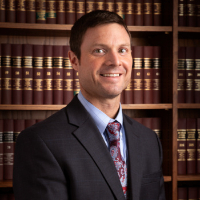Augusta Criminal Lawyer, Michigan
Sponsored Law Firm
-
 x
x

Click For More Info:
-
Hannawa Law PC
2909 E Big Beaver Rd Troy, MI 48083» view mapCriminal Defense Law Full-service legal experts on your side.
Whatever the specific details of your situation may be, our attorneys are ready to fight for you and guide you through every step of the process.
248-466-0770
Wesley Johnson Todd
✓ VERIFIEDDUI-DWI, Criminal, Bankruptcy, Divorce & Family Law
Wesley Todd originally joined the firm as an intern in 2008. He has been a shareholder of the firm since 2020. He was born in Kalamazoo, Michigan and ... (more)
Matthew Xavier Hauser
✓ VERIFIEDCriminal, Felony, Landlord-Tenant, Child Custody
Ready to work with you to resolve your legal needs. Vandervoort, Christ & Fisher, P.C., is a general practice law firm that is dedicated to servin... (more)
FREE CONSULTATION
CONTACTDavid M. Stupak
Real Estate, Family Law, Divorce & Family Law, Criminal
Status: In Good Standing Licensed: 47 Years
Marianne E. Lebeuf
Accident & Injury, Criminal, Divorce & Family Law, Employment
Status: In Good Standing Licensed: 36 Years
Michael L. Lind
Litigation, Estate Planning, Family Law, Criminal
Status: In Good Standing Licensed: 24 Years
Kristen L. Getting
Federal Appellate Practice, Family Law, Divorce & Family Law, Criminal
Status: In Good Standing Licensed: 29 Years
Christopher M. Baldwin
DUI-DWI, Criminal, Insurance, Personal Injury
Status: In Good Standing Licensed: 11 Years
 Nickolas Hannawa Troy, MI
Nickolas Hannawa Troy, MI AboutHannawa Law PC
AboutHannawa Law PC


